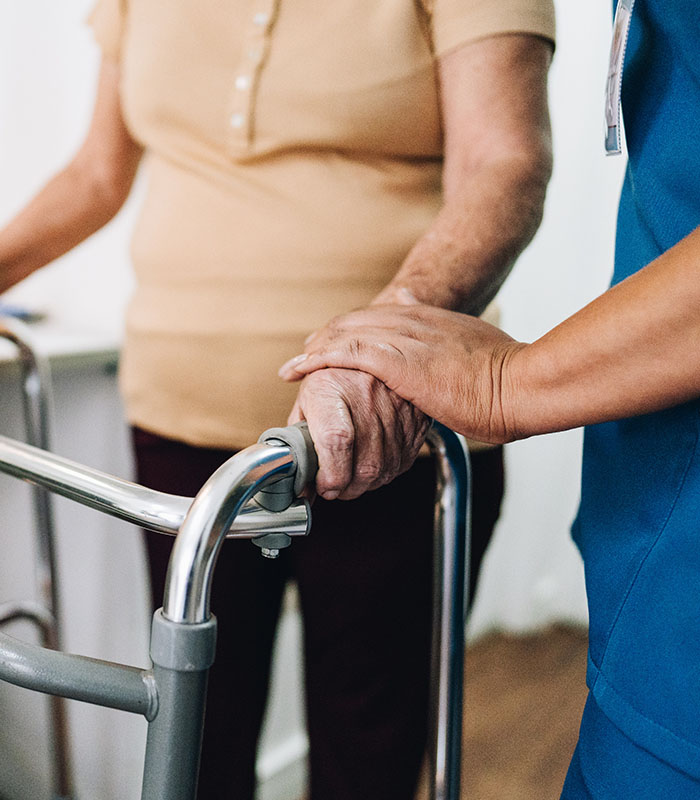Malnutrition
Kansas City Nursing Home Malnutrition Attorneys
Understanding the Impact of Malnutrition in Elderly Care
Nursing homes and other long-term care facilities have a responsibility to provide for residents’ basic needs. This includes ensuring that residents receive adequate nutrition to remain in optimal health. When nursing homes are negligent, residents can suffer from malnutrition and/or dehydration—and the consequences can be severe.

Seek Justice for Nursing Home Malnutrition in Kansas City
If you or your loved one suffered a serious injury or illness due to malnutrition while living in a nursing home, long-term care facility, or similar setting, you could be entitled to compensation. The Law Office of Tom Wagstaff Jr. can help you file a nursing home abuse claim and fight for the justice you deserve. We have more than 25 years of experience and dedicate a large portion of our practice to this area of law; our Kansas City nursing home malnutrition attorneys are equipped with the resources, skills, and in-depth legal knowledge needed to effectively pursue a favorable outcome on your behalf.
Let our team help you and your family. Call 816-708-0524 or reach us online using our secure contact form. Your initial consultation is free.
What Is Malnutrition?
Malnutrition is a lack of adequate nutrition. It is the result of not having sufficient food, not consuming sufficient nutrients, and/or being unable to use the nutrients one consumes. Essentially, malnutrition is a severe imbalance in energy and nutrients within the body.
Malnutrition is dangerous for people of all ages, but especially the elderly. This is because seniors are more likely to suffer from weakened immune systems and a variety of health conditions that can be significantly worsened by poor nutrition. This can lead to serious complications, illnesses, infections, and even death.
Sadly, malnutrition is a common problem in nursing homes across the country. According to the National Center of Biotechnology Information (NCBI), approximately 20% of all nursing home residents in the United States suffer some degree of malnutrition. However, malnutrition is likely underreported. In any case, malnutrition is associated with higher mortality rates, whereas higher body mass indexes (BMIs) are associated with a reduced risk of mortality in nursing homes.

Signs of Malnutrition
When properly treated, malnutrition and its effects can be reversed in most individuals. Because of this, it is important that you know the signs of malnutrition so that you can seek help for your elderly loved one right away. Some of the most common signs of malnutrition in the elderly include:
- Unplanned weight loss
- Loss of appetite
- Weakness
- Tiredness and fatigue
- Swelling
- Changes in mood, including increased irritability, depression, or anger
- Difficulty concentrating
- Feeling cold/being unable to get warm
- Hair thinning or hair loss
- Papery, thin, or cold skin
- Changes in sleep patterns, including excessive sleep
Malnutrition can also make it harder for a person to recover from illnesses, such as colds and cases of flu, as well as more serious conditions, such as pneumonia, clostridium difficile (C. diff), and other infections.
Causes of Malnutrition in Nursing Homes
Many nursing homes are understaffed, leading to overworked caregivers who may not have the time to ensure each resident receives adequate nutrition. This can result in missed meals or inadequate assistance for those who need help eating.
Staff may lack proper training on the nutritional needs of elderly residents, especially those with specific dietary requirements due to medical conditions such as diabetes or heart disease. Without this knowledge, they may fail to provide appropriate meals or recognize signs of malnutrition.
Budget constraints or poor management can lead to substandard food quality. Meals may lack essential nutrients or be unappetizing, causing residents to eat less than they should.
Elderly individuals often have medical conditions that affect their ability to eat, such as dysphagia (difficulty swallowing), dental problems, or diminished appetite due to medications. Without proper care and attention, these conditions can lead to malnutrition.
Each resident has unique dietary needs, preferences, and restrictions. A one-size-fits-all approach to meal planning can result in some residents not receiving the nutrients they need, especially if their specific needs are overlooked.
In some cases, staff may neglect residents’ nutritional needs due to oversight or intentional neglect. This can include failing to monitor food intake, not assisting with feeding, or ignoring dietary restrictions and requirements.
Why Malnutrition Is Considered Nursing Home Abuse
Residents of nursing homes have the right to receive proper care, which includes adequate nutrition. Malnutrition represents a failure to meet these basic needs, violating residents' rights.
Malnutrition can lead to severe health issues, including weakened immune systems, muscle wasting, increased risk of falls, pressure ulcers, infections, and in severe cases, death. The detrimental effects on residents' health make this neglect particularly egregious.
Nursing home abuse is not limited to physical or emotional harm. Neglect, including the failure to provide adequate nutrition, is a recognized form of abuse. It reflects a disregard for the well-being of residents and a failure to provide necessary care.
Nursing homes are subject to regulations that require them to meet specific standards of care, including nutritional standards. Failure to comply with these regulations constitutes abuse and neglect.
Caregivers and nursing home staff have a moral and ethical duty to ensure the health and well-being of their residents. Failing to provide proper nutrition undermines this duty and constitutes a betrayal of trust.
Who Is Responsible for Malnutrition in Nursing Homes?
In nursing homes and other long-term care facilities, malnutrition can occur for a wide variety of reasons. Some elderly individuals have health conditions that make it harder for them to adequately utilize the nutrients they consume. Others may experience reduced appetites due to illness, health concerns, or as a result of aging, which can lead to poor nutrition.
However, in many cases, nursing home residents are simply not provided with adequate food or they are not given enough of the right types of food. This can lead to malnutrition and overall poor health.
When nursing homes and similar facilities fail to provide for residents’ basic needs, including the right to proper nutrition, they can be held legally responsible. The same is true of individual caregivers who neglect elderly individuals’ nutritional needs, leading to malnutrition and related health complications.

Contact a Nursing Home Malnutrition Attorney
If you believe that you or your loved one suffered malnutrition because of a nursing home or caregiver’s failure to uphold an acceptable standard of care, you should consider hiring an attorney. These are complex cases; you need someone by your side who understands how the system works and how to effectively pursue compensation on your behalf. At the Law Office of Tom Wagstaff Jr., we have extensive experience representing those harmed by malnutrition caused by:
- General neglect
- Medical neglect
- Inadequate staff
- Inadequate training
- Unsupervised care
- Negligent hiring
- Personnel issues
Our Kansas City nursing home malnutrition attorneys are here to guide you through the legal process. We provide highly personalized representation because we truly care about the people we serve. We want you to know that you have an advocate and ally on your side, one that will fight tirelessly for you and the fair recovery you deserve.
Let The Law Office of Tom Wagstaff Jr. Team Fight for You & Your Family
We are ready to assist you with your case and answer any questions you may have. Our attorneys are well-versed in nursing home abuse laws in Kansas and Missouri, and we proudly serve clients throughout the Greater Kansas City Area, including all of Jackson County and beyond. No matter how complex your case may be, you can rest assured that we will do everything possible to protect your rights and fight for the best possible outcome. If necessary, we are fully prepared to go to trial.
There are no legal fees for you unless we recover compensation on your behalf. Call 816-708-0524 or contact us online today to get started with a free consultation.
